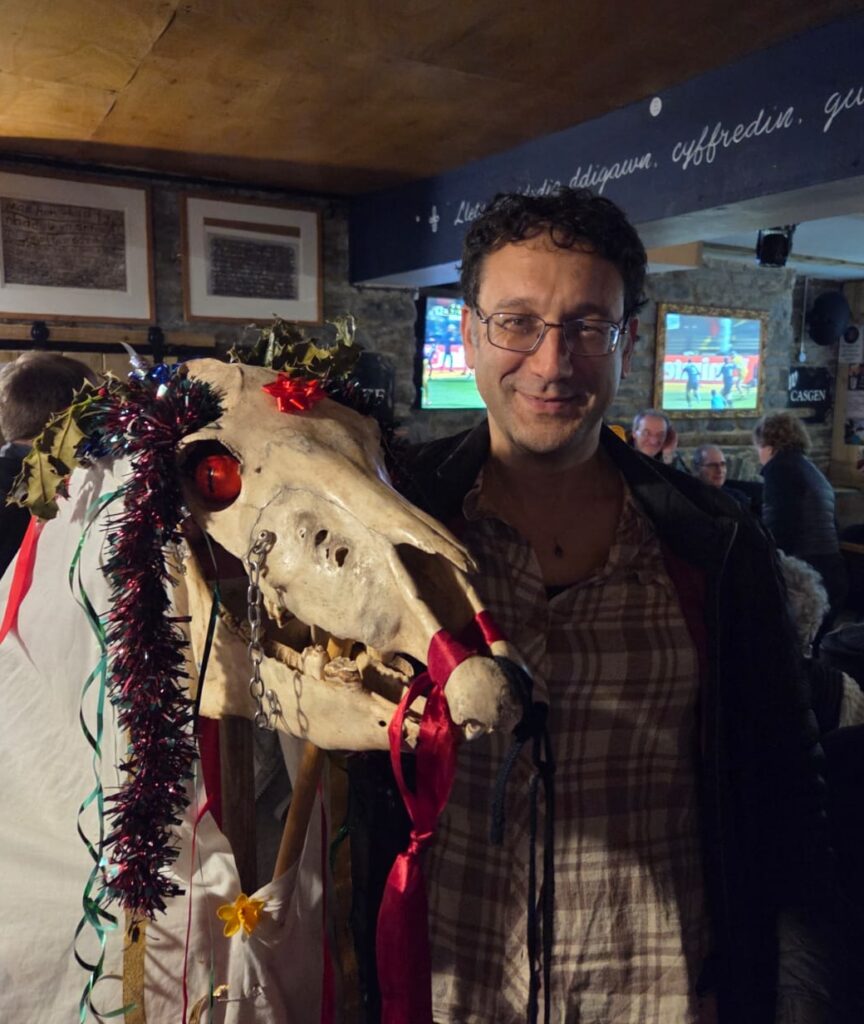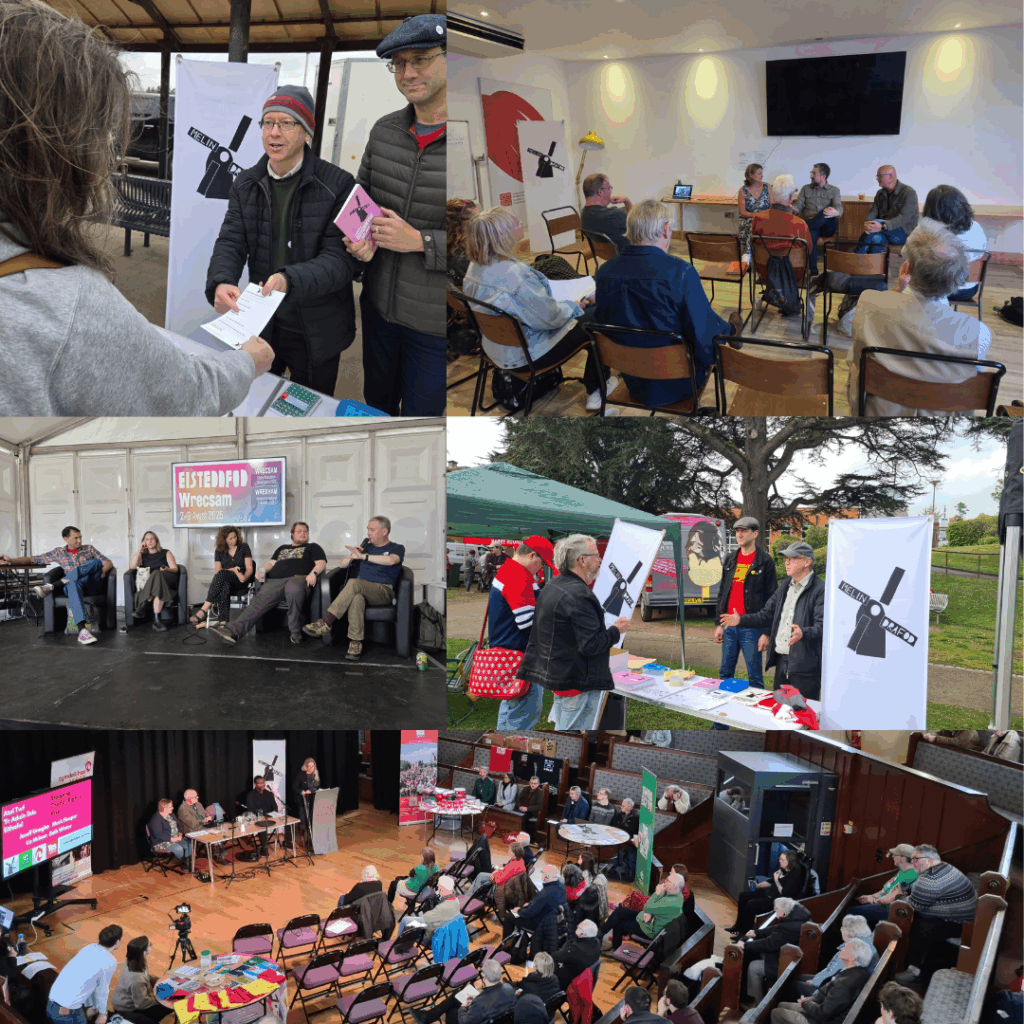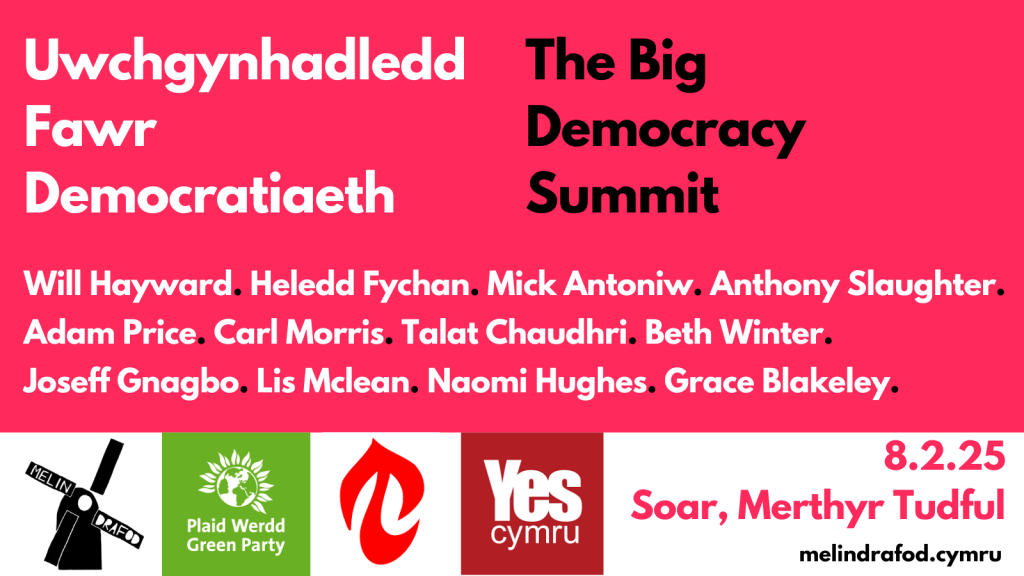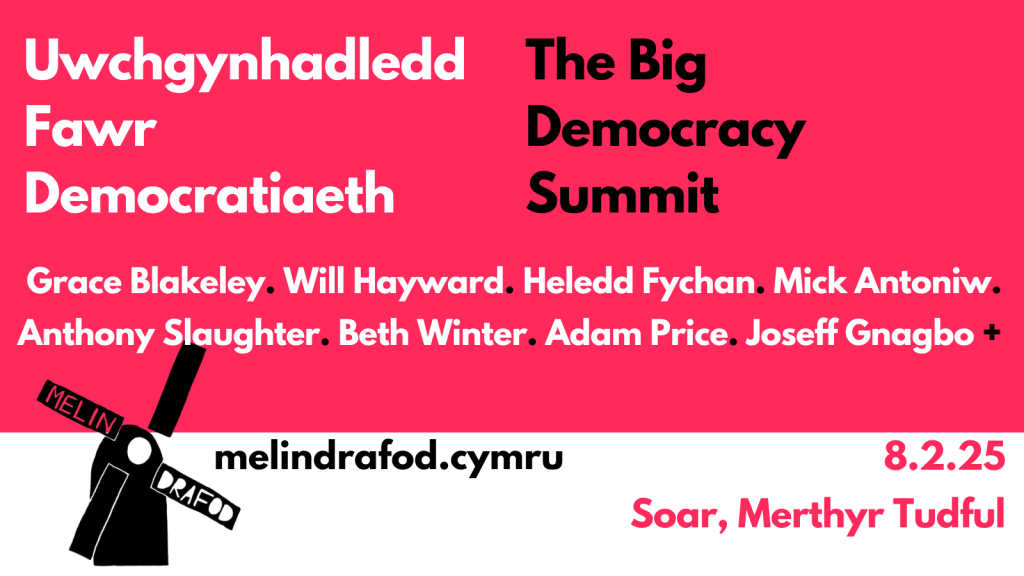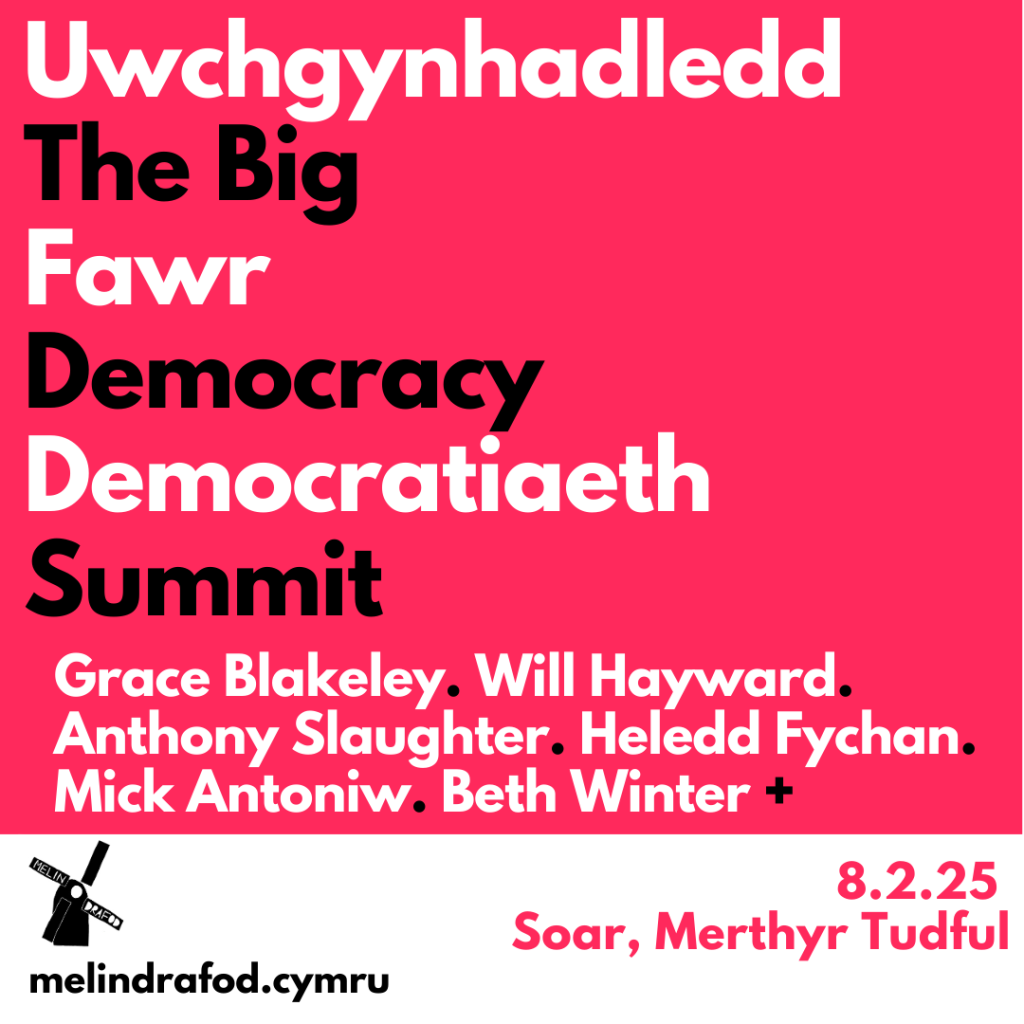The question of affording Independence has been raised again thanks to a social media campaign by the Labour Party during the Caerphilly by-election. This campaign, supported by superficial figures from the Wales Office, claimed that Independence for Wales costs around £7,000 per person, (with some variations) with the obvious intention of scaring voters. Naturally, this became a topic of discussion during the Welsh Independence rally in Rhyl on 18 October
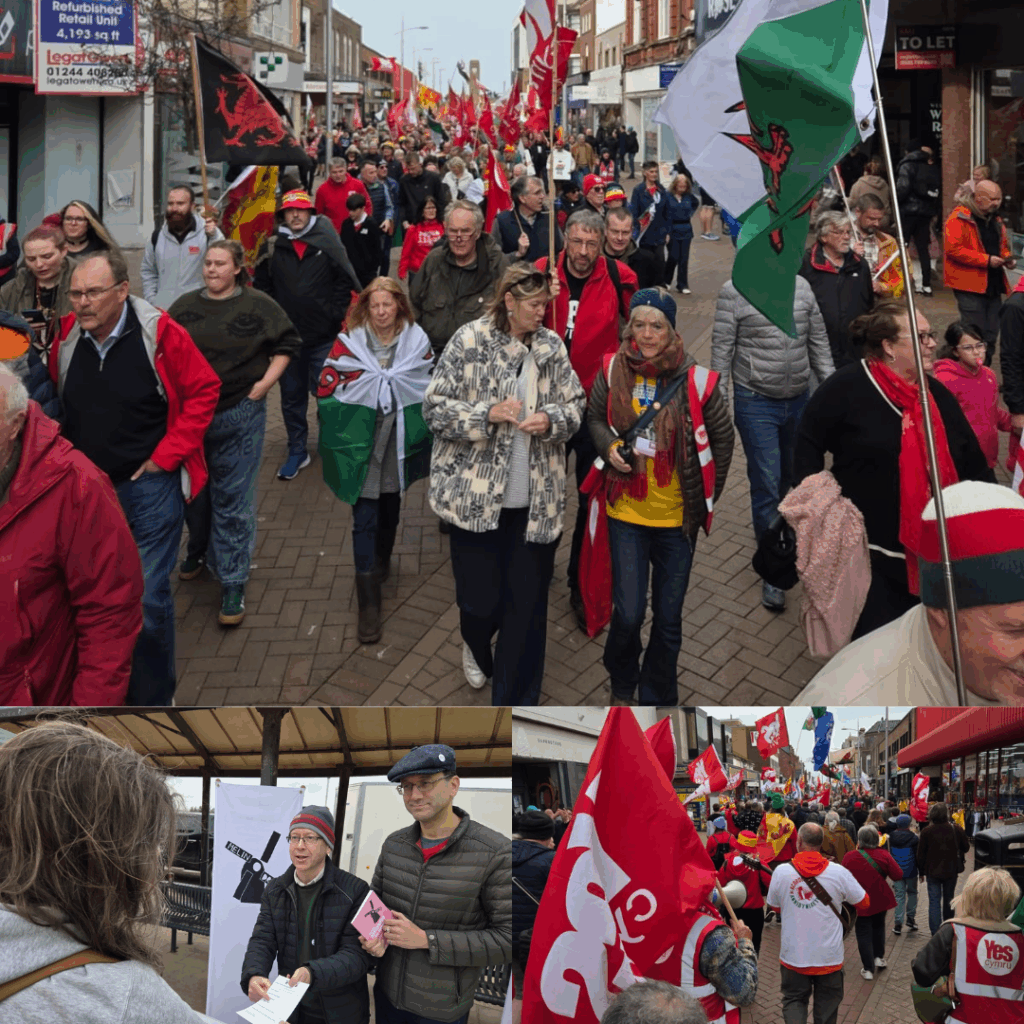
The debate about affording independence has been a headache for independence supporters for many years, and to use a popular contemporary phrase, it’s a topic that lives “rent free” in our heads, and for good reason, as this is what many people will ask you if you tell them that you support independence for Wales.
While supporters of independence are happy with the understanding that every other country can afford to be independent, so this must therefore also be the case for Wales, this does not persuade those less certain in their support, and it seems that, so far. we have failed to put our finger on the answer that gives confidence to doubters.
For this reason, this subject has attracted a lot of attention, and Melin Drafod in 2023 produced a paper: Achieving an Independent Wales, a study built on John Doyle’s study of the Welsh fiscal gap “The Fiscal Deficit in Wales” (2022), which itself followed a series of papers on subjects by the Wales Governance Contre, Cardiff.. While the discussion moved forward significantly during this period, we now know that it progressed even further later in 2023 with the publication of a paper by Thibault Laurentjoye “Currency Options for an Independent Wales“. Laurentjoye’s paper gives a clear and firm explanation of the fiscal situation of an independent Wales, adding robustness to the discussion, but the points he makes seem not to have received sufficient attention within the independence movement, perhaps because of the timing of the publication.
Whilst presenting a strong argument for Wales adopting its own currency, Laurentjoye also frames the discussion of the fiscal gap in a different way, explaining that Wales has dual debt, or “twin deficits”, both fiscal deficit and commercial deficit, both similar in size, and also statistically uncertain, up to perhaps £13 Billion, but much less if we accept Doyle’s arguments. Also, more recent data suggests Wales’ trade position may have improved slightly. There is no certainty of course, everyone in the field emphasises the weakness of the statistical information that exists about the Welsh economy.
Understanding the difference in these balances is key, and one convenient method of clarifying this is by looking at countries where the picture is more mixed. For example, many countries in Europe, including Germany and Italy, have positive accounts in trade because they export more than they import, but negative accounts, or fiscal deficits with their Governments. Another example is Japan, which has a huge fiscal deficit but a small trade deficit today, following a strong history of exporting. The difference is that any debt in the balance of trade is a debt to other countries, while the “fiscal gap” is a debt that the country owes to itself. Britain has debts on both balance sheets and is obsessed with the fiscal one.
This is key given how Wales deals with its situation when it gains independence. Laurentjoye recommends that Wales sets up separate commissions to deal with these issues, a Trade and Current Account Commission, and a Fiscal Commission for the country’s finances.
This sheds new light on the options facing an independent Wales. We can consider one possible solution, where an independent Wales would build a large barrage to generate electricity from the tide. This would not necessarily close the Government’s fiscal gap as the Government could not benefit much from it, it could not raise a high price or tax from this supply on other countries in a competitive market, but it could close the trade gap significantly if it meant that the people of Wales worked more on exportable products than before. This is just one suggestion, but it clearly illustrates what could happen if more investment were planned for Wales. Our situation at the moment is that there is not enough investment in Wales, and we are suffering economically because of this.
If we wanted to tackle the fiscal gap, we could consider the indirect effect of relocating functions such as governance, the civil service, legal services and defence for example, to ensure that they take place within the borders of Wales. This would ensure that the relevant staff are not only more aware of the needs of Wales in carrying out their work, but also paying taxes in Wales and consequently reducing the fiscal gap. This is clearly fiscally more efficient than paying another country to govern us. Such a policy could be implemented promptly, quickly changing the picture of the fiscal gap.
What is clear then is that the responsibility for any trade and fiscal gaps lies with the Government of an independent Wales, not with the citizens. The so called cost or unaffordability of independence claimed by opponents is both wrong and irrelevant. An independent Wales will be a more complex, with more responsibilities, and the people of Wales, like the citizens of any other democratic country, should ensure that they elect a Government that has appropriate plans to secure the future of their country. An independent Welsh government would need to have plans that include appropriate investment in our own country and take responsibility for where money is spent.
This is an unfamiliar mental leap, not only because the British Government is withholding these responsibilities from us, but also because of the political-economic context we are currently in. Our Labour Government is hardly willing to implement any practical change to our services because of their fear of Britain’s fiscal gap, we should not therefore be surprised at their reluctance to undertake more radical changes in Wales. Nevertheless, it is of course possible to make changes that overcome such problems, political will is all that is needed. It looks like the voters are now, with some justification, looking for more fundamental changes to our society and economy than is being offered to them by traditional British politics, and they may be less fearful than many of the politicians.
Join us to be a part of the discussion
